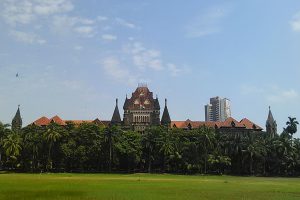Bombay High Court: In a recent order, a Bench comprising of Dr Manjula Chellur, C.J. and M S Sonak, J. dismissed a petition demanding video recording of court proceedings on the ground that it was a fundamental right of a citizen to know the judicial procedures and happenings during hearing of cases. The Court held that video recording of judicial proceedings cannot be a regarded as a fundamental right of a citizen, but can be allowed only if it is necessary in a particular case or in a given situation.
In the given case, the petitioner argued that Right to Information was a well-recognised and integral part of the right to life within the meaning of Article 21 of the Constitution. The petitioner further argued that Articles 14 and 19 of the Constitution, which deal with right to equality and right to freedom of expression respectively, are to be read together and so video-recording of court proceedings and telecast thereof, if it is necessary in public interest, was a fundamental right.
As earlier judgements had not supported live telecasts and compulsory video recordings of a judicial proceedings, the Court dismissed the petition on same grounds. The Judges also made a mention of two orders passed earlier by the Bombay High Court, including one where a Bench comprising of G.S. Patel and S.C. Dharmadhikari, JJ (Indur Kartar Chhugani v. State of Maharashtra, Criminal Application No. 1240 of 2015, decided on January 7, 2016) had remarked that Courts were not stages and sets from The Truman Show, in Courts there is judicial proceeding of the utmost solemnity, not The Hunger Games. The Court also remarked that all previous video-conferencing and recording of trials in specific matters had been directed to a single end, which was to meet the needs of that particular case and not to meet the needs of the general public to be entertained. [Navniit Tarachand Kkhosla v. Union of India, 2016 SCC OnLine Bom 8895, decided on 6th October, 2016.

